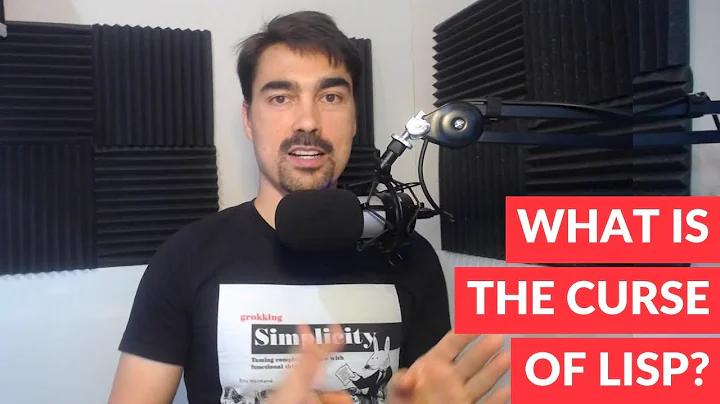Lisp in the real world
Solution 1
Franz, Inc. provides an inexhaustive list of success stories on their website. However:
Please don't assume Lisp is only useful for Animation and Graphics, AI, Bioinformatics, B2B and E-Commerce, Data Mining, EDA/Semiconductor applications, Expert Systems, Finance, Intelligent Agents, Knowledge Management, Mechanical CAD, Modeling and Simulation, Natural Language, Optimization, Research, Risk Analysis, Scheduling, Telecom, and Web Authoring just because these are the only things they happened to list. — Kent Pitman
We can find other success stories here: http://lisp-lang.org/success/
and a list of current companies using Common Lisp: https://github.com/azzamsa/awesome-lisp-companies
Solution 2
Does Emacs' elisp count? That's the most "real world" use that I am familiar with (although I'm not sure that Emacs counts as "real world" either).
Solution 3
ITA Software uses Common Lisp for its QPX low-fare search engine which powers sites like Orbitz, Kayak, and American and United Airlines among many others. It's also used in part for its upcoming passenger reservation system for Air Canada. Paul Graham has written a little bit about Lisp at ITA in the past.
(Disclaimer: I work there.)
Solution 4
The story of the rise and fall of Lisp at the Jet Propulsion Lab
Solution 5
as a small startup we've built up something some people call an "application server". but in fact it's just a bunch of integrated common lisp libraries for sql connectivity and web applications. some details are available at cl-dwim project page
using that we have developed and operate a web application for the hungarian government that collect data from the local governments and calculates the relevant part of the budget of the country. this is the second budget we are planning now.
it has about 4000 users, and it runs on a cluster of computers.
as of "academic language": we are playing with things like persistent continuations for business process modelling. it's some random lisp code with a few extra process-related primitives and a few constraints. it can stop at random points in the code and fall asleep (get comitted into the database) while it waits for some external event.
is it practical or academic? you decide... :)
Related videos on Youtube
titaniumdecoy
Updated on May 16, 2020Comments
-
titaniumdecoy almost 4 years
I have experimented with Lisp (actually Scheme) and found it to be a very beautiful language that I am interested in learning more about. However, it appears that Lisp is never used in serious projects, and I haven't seen it listed as a desired skill on any job posting. I am interested in hearing from anyone who has used Lisp or seen it used in the "real world", or who knows whether it is considered a purely academic language.
-
Erwan over 15 years@titaniumdecoy: After just discovering Clojure and having no previous experiences in Lisp style languages, I added the Clojure tag for those searching for discourse into Lisp. :)
-
Erwan over 15 years@titaniumdecoy: Clojure is a decendant of Lisp which runs on the JVM and is able to utilise APIs written in Java
-
skaffman almost 15 yearsI wouldn't learn Lisp as a way of improving your career, because it won't. Learn it to make you a better general programmer, by all means.
-
Rayne almost 15 yearsOn the Clojure mailing list, we frequently get industry success stories from people who use the language.
-
Erik Forbes over 14 years@skaffman: but won't that help to improve your career?
-
gcbenison about 12 yearsI have never seen it listed in a job posting either, but I am convinced that my Scheme experience helped me land my last job.
-
-
1800 INFORMATION over 15 yearsThats not really a good example, they went out of business years ago
-
Jeff over 15 yearsBTW, can I just add that I think Paul is delusional on this one: it was not LISP that gave them the edge, it was just being smart and paying attention. They could have succeeded with VB if that was the only tool at hand.
-
Head Geek over 15 yearsThey didn't go out of business, they were bought up by Yahoo. Big difference, at least to the developers. :-)
-
1800 INFORMATION over 15 yearsIf the best example that can be come up with got bought out years ago and was subsequently run into the ground, then LISP it shows that LISP isn't that great in the real world?
-
Jeff over 15 yearsRight - then enjoy not being able to hire anyone :)
-
jfs over 15 years@Jeff: "But it would take a lot, or require special circumstances, to persuade me to choose Lisp for a major software project". It is a point against Lisp.
-
roger l over 15 years@1800: It only "got run into the ground" after Yahoo owned it and had it rewritten in another language, so stop strawmanning.
-
1800 INFORMATION over 15 yearsAnd since then there have been no other significant examples of LISP being used in the real world, and if it was any good they would have kept using it written as LISP?
-
 Admin over 15 yearswhere's this quote from? googling by text chunks only yields this very post
Admin over 15 yearswhere's this quote from? googling by text chunks only yields this very post -
 C. K. Young over 15 yearsYou should click: "repeat the search with omitted results". The quote is from: discuss.fogcreek.com/joelonsoftware/…
C. K. Young over 15 yearsYou should click: "repeat the search with omitted results". The quote is from: discuss.fogcreek.com/joelonsoftware/… -
Matthias Benkard over 15 years@1800: You seem to deliberately misunderstand the responses to your flamebait. Why don't you simply broaden your horizon by trying Lisp out for yourself instead of concluding it isn't “any good” from what other people have decided to do based on some circumstances that you don't know anything about?
-
Ali over 15 years@1800: Forget what Matthias said, I actually think its quite funny. Your assertion that "there have been no other significant examples of LISP being used in the real world" directly implies that you are omniscient. Bravo!
-
Attila Lendvai over 15 yearsyou can make executables with sbcl (they will be huge, though). i like the way everything is opensource around lisp. i'm very reluctant to depend on non-OSS components and all our stuff is OSS. anything can be disassembled, hacked and re-sold. the fix should happen at the marketing department...
-
 Admin over 15 yearscheers. i have to say, this quote reads stronger then it really is, outside of context. weinreb is now working at ITA, and blogging about lisp among other things; i wonder how and if that might've influenced his opinion.
Admin over 15 yearscheers. i have to say, this quote reads stronger then it really is, outside of context. weinreb is now working at ITA, and blogging about lisp among other things; i wonder how and if that might've influenced his opinion. -
Ali over 15 yearsMy plans are probably quite similar: 1) Make a kickass library on top of scheme (halfway there now). 2) Test the library by writing cool programs in it (1 down, few more to go). 3) Open source the library (already done but very casually). 4) ... 5) Lisp becomes the natural tool for a job at work.
-
user3724801 about 15 yearsThis is an amazing piece of software.
-
Johan Kotlinski almost 15 yearsThat blurb seems like a very hollow mantra to me. Sure, it may be around in those areas, but then mostly as legacy code. In my experience from real life, Python combined with swigged C/C++ has much replaced Lisp as the rapid prototyping language(s) of choice for pragmatic hackers.
-
Friedrich over 14 years"It's a wonderful language, but it's crippled because (in my opinion as a software business owner and programmer) there are very few commercial Lisp packages, and the few that are out there demand a run-time fee (because a proper Lisp package can be used by end-users to write Lisp programs too)." Not true e.g for LispWorks on Windows, Mac, and Linux
-
Head Geek over 14 yearsInteresting... that's the only one I've seen that doesn't demand a run-time fee. They may be the salvation of Lisp for commercial software.
-
Charlie Flowers about 13 yearsSo where do those jobs appear? I've been trying to puzzle that out myself.
-
Charlie Flowers about 13 yearsI am pulling for you. But you only have 2 and a half years left! Hope you're on track.
-
Rich about 13 yearsFrom experience: mailing lists, direct personal mail from companies and recruiters, in-person mentions, user groups, and the like.
-
Charlie Flowers about 13 yearsthanks. It sounds like you're saying the same thing I read elsewhere ... that the Lisp world is a small community, and you can take advantage of that by contributing and getting known within that community, and that's probably the best way to get Lisp jobs. Do you agree?
-
Rich almost 13 yearsYes. Furthermore, that's the best way to get jobs, period. Demonstrate your skills, get to know people, and make yourself known.
-
new123456 almost 13 yearsNo, but
vimdoes ;). Unfortunately (or perhaps fortunately), nobody has written serious software invimscript. -
Lindsey Kuper over 12 yearsAs a Schemer, it's interesting and inspiring to read the part of the LilyPond manual that explains how Scheme became a part of LilyPond. It used to be entirely in C++, but they found that it needed to be more programmable by the user, and they were able to solve that problem by rewriting parts of it in Scheme and building in a Scheme interpreter that gives the user access to LilyPond internals.
-
Luka Ramishvili about 12 years@kotlinski where's evidence? when you overgeneralize the industry, then you're talking about the average, not about the best parts of it. success stories are almost every time following distinctive and not-so-average technologies/ideas.
-
R R almost 12 yearsWow! I totally thought that all software that the government uses was written it basic at most given how much most of them suck. Is this still in use?
-
Attila Lendvai almost 12 yearsof course not... we've been ditched once the project has been designed, proved to be viable, and enough money/attention got allocated. a well-connected bigger company took over, and wrote its own version in java. one interesting tidbit is that they kept on running our codebase for years. i helped them with a day of consulting...
-
Karol S over 10 yearsHi. 5 years are over.
-
Reb.Cabin over 8 yearsThere are several groups at Amazon using Clojure in production. The 100% Java compatibility makes all the difference because we can make the argument that there is zero risk to using Clojure, that Clojure is just "an alternative (shorter) notation for Java." Everyone accepts that if there are two ways to do the same thing and one of the two ways is shorter (fewer lines of code), the shorter one is better. Clojure wins that fight almost every time.
-
Loïc Faure-Lacroix over 7 yearsLate is better than never!
-
leppie over 7 years@LoïcFaure-Lacroix Still trying! :D
-
 Ehvince about 5 yearsMore here: lisp-lang.org/success (beautifully presented) and here: companies using Common LIsp.
Ehvince about 5 yearsMore here: lisp-lang.org/success (beautifully presented) and here: companies using Common LIsp. -
 Ehvince about 5 yearsHere's a reverse story: pgloader was re-written from Python to Common Lisp: tapoueh.org/blog/2014/05/why-is-pgloader-so-much-faster
Ehvince about 5 yearsHere's a reverse story: pgloader was re-written from Python to Common Lisp: tapoueh.org/blog/2014/05/why-is-pgloader-so-much-faster -
 Ehvince about 3 yearsHis list is continued here: github.com/azzamsa/awesome-lisp-companies
Ehvince about 3 yearsHis list is continued here: github.com/azzamsa/awesome-lisp-companies


![GTA - Red Lips feat. Sam Bruno (Skrillex Remix) [Official Video]](https://i.ytimg.com/vi/qI1ondD4FGU/hq720.jpg?sqp=-oaymwEcCNAFEJQDSFXyq4qpAw4IARUAAIhCGAFwAcABBg==&rs=AOn4CLAhU81z2No-9BjmCm-Y8uLEQwXzAg)









